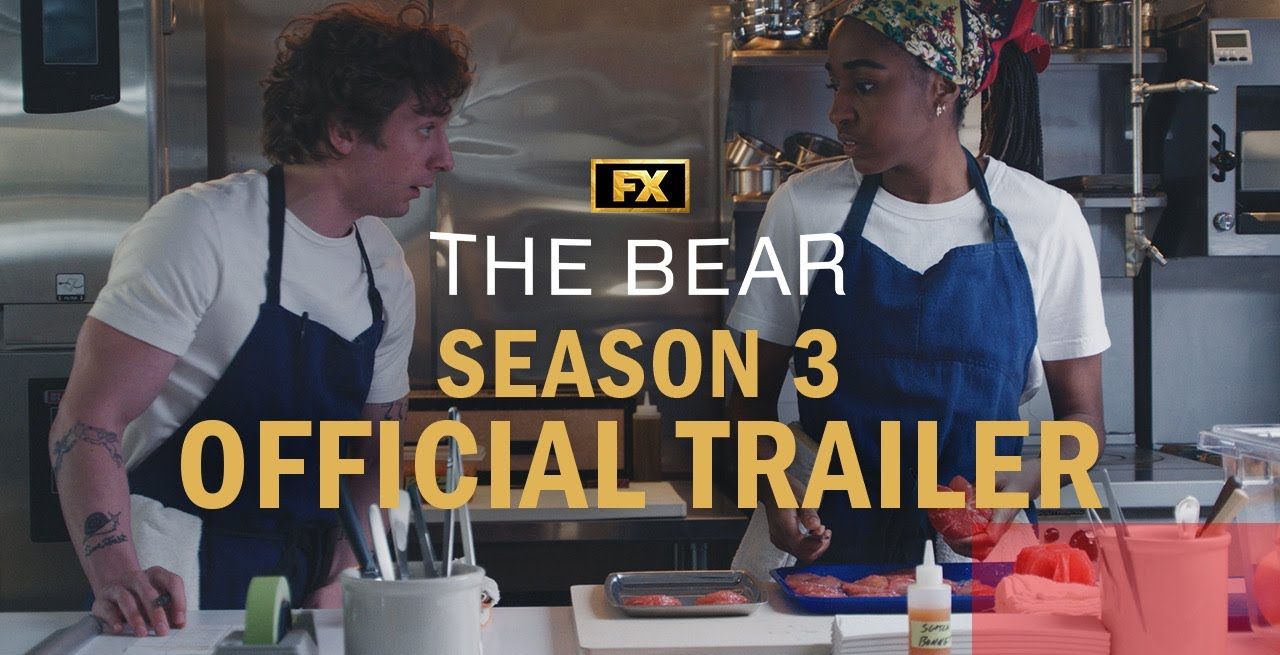Restaurant Insiders Reflect on Issues Addressed in ‘The Bear’
By MRM Staff
While viewers are anticipating the third season premiere of "The Bear" on June 26, the show really hits home for industry insiders as the dark comedy highlghts the daily struggles of operating a restaurant as well as opening one. It's raw and realistic portrayal of the struggles to keep a family-owned restaurant in Chicago up and running, mirror the real-world experiences of many in the industry, particularly in the areas of financial and mental health.
"'The Bear' does a profound job at depicting the emotional and physical intensity of operating and running a business, especially as an owner," said Rhea Michel, co-founder of Saucy Chick in Los Angeles. "As an owner, you are responsible for your livelihood, the livelihood of others, and it is a crash course in leadership in an area that we are still learning as well."
The most common problem new restaurants face is that they open undercapitalized, inKind CEO Johann Moonesinghe pointed out. inKind collaborates with more than 1,600 restaurants such as MINA Group, Ethan Stowell Restaurants, and José Andrés Group by providing funding to restaurants of all shapes and sizes who are looking to grow. As part of its model, the app takes credit in the restaurants it funds and markets and sells high-dollar gift cards to guests.
"Just like Carmy and Natalie, who had to go back to their uncle for additional funds, one of the mistakes most first-time restaurateurs make is thinking that all money is the same as they scramble to get operating capital," said Moonesinghe. "There are pros and cons to any type of funding a restaurant can take. Most people don't consider how the terms will impact their balance sheets in the future or how adding an investor will impact the management of the operation."
'The Bear' does a profound job at depicting the emotional and physical intensity of operating and running a business, especially as an owner.
Many storylines depicted in the first few seasons of "The Bear" resonated with inKind execs. In fact, the storyline of season one was "dead accurate" to experience of starting in restaurant hospitality, said Gabe Topping, Account Executive at inKind. Just as Carmy brought a new level of expertise to his family’s restaurant, Gabe’s mentor from New York transformed a neighborhood eatery into a culinary hotspot.
"I was approached by an owner of a small restaurant in Watertown, Mass, (Strip-T’s) and his son had just come back from New York working at Momofuku Ssam Bar and took over his dad‘s restaurant," Topping said. "He had the experience and the résumé of someone like Carmy and I knew nothing about restaurants. The chef was patient with me (for the most part) and patient with the rest of the crew, both FOH and BOH. We didn’t realize at the time how special this opportunity was, and after several months and some great press he brought on other chefs from New York and a front of house team from the likes of Clio, Craigie on Main, No.9 Park and other established Boston restaurants.”
An episode in Season Two, where Richie learns the importance of attention to detail and going above and beyond for guests, resonated deeply with Ben Mandell, Account Executive at inKind.
“One night, I had a table that was giving me problems all night – complaining about the quality of food, asking me to grab one more thing each time I touched the table, inundating me with questions while I had a full section during a busy service," Mandell said. "As they ate dessert, one guest asked me if we could bring out more rhubarb compote for his cheesecake, as he was dissatisfied with the amount on the plate. It took a lot of energy for me to swallow my pride and walk back to the kitchen, but I was definitely frustrated. I went to the pastry chef and asked for some extra compote, fully expecting an eye-roll and either a begrudging 'sure' or a flat 'no.' Instead, I got a 1000-watt smile with the response, 'Absolutely. Whatever makes the guest happy!' In the end, it was a very small gesture, and the guests at that table were very pleased to receive it.”
"The Bear" also highlights the mental health struggles faced by those in the industry as the high-pressure environment of a kitchen is something many restaurant workers can relate to.. One inKind employee shared a heartbreaking story of a colleague who succumbed to the pressures of the industry during the pandemic.
“'The Bear' might be exaggerated for some, but for me, it felt very relatable to how things can go when there is poor management, lack of emotional intelligence, very little compensation, and I could keep going,"Shayel De Leon, Sales Development Manager at inKind shared. "Suicide has affected many people in our industry, and seeing that “The Bear” raises awareness touched my heart deeply. Sometimes we are harsh in the kitchen and we don't even know what chaos others are going through at home.”
For Saucy Chick's Michel, the struggles are all worth it.
"There’s a big responsibility and it can be daunting if not overwhelming, there’s so much that is outside of our control and how we pivot has an impact. However, there are moments that give purpose; it’s in the focused way we prep, there’s a calmness that washes over; it’s in the smile that is shared with our guests; it’s in the connection of the team – that we are all working to build a future together, for each other and for others."

